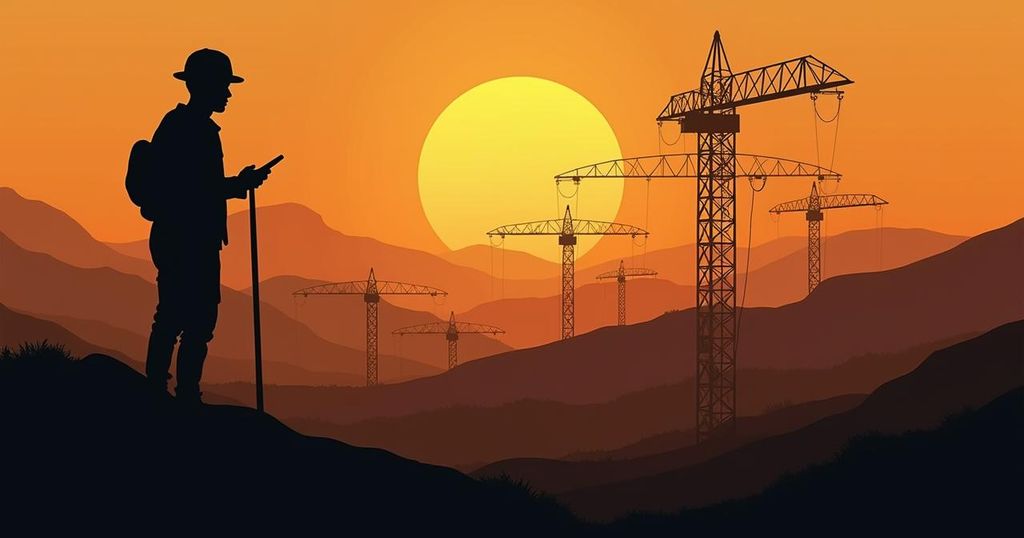Ethiopian Geological Institute Refutes Earthquake Risk Claims Near GERD
The Ethiopian Geological Institute has rejected reports from media outlets, including Egypt Independent, alleging a potential earthquake risk near the Grand Ethiopian Renaissance Dam (GERD). Ijara Tesfaye, the Director General, stated there is no evidence to support such claims and affirmed that thorough geological assessments confirmed the dam’s safety away from seismic activity areas. The recent minor earthquake at Fental, located 150 kilometers from the dam, poses no threat to its integrity and the claims should be dismissed as misinformation.
The Ethiopian Geological Institute has categorically dismissed reports suggesting a potential earthquake near the Grand Ethiopian Renaissance Dam (GERD), characterizing such claims as unfounded and erroneous. Spreading misinformation, certain media outlets, including Egypt Independent, had alleged the possibility of seismic activity in proximity to the GERD, which the Institute has vehemently denied. Ijara Tesfaye, the Director General of the Ethiopian Geological Institute, clarified that there is no geological basis for the fears propagated by the media. In fact, while Ethiopia, situated along the Rift Valley, has experienced various seismic events throughout its history, the majority have posed little risk to infrastructure. The recent earthquake recorded at 4.9 on the Richter scale at Fental, approximately 150 kilometers from Addis Ababa, is considered minor and does not indicate any threat to the GERD. Moreover, Mr. Tesfaye emphasized that detailed geological surveys conducted before the construction of the dam confirmed that it is located at a safe distance from seismic activity. “The information being circulated about earthquake risk is incorrect,” he stated, further alleging that there is no substantive evidence to suggest that earthquakes in the Rift Valley could impact other regions, such as where the GERD is sited. In light of these clarifications from Ethiopia’s geological experts, it is imperative to approach claims from unverified sources critically, particularly regarding significant projects such as the GERD, which underwent rigorous safety evaluations during its planning and construction phases. The assertion of seismic risk continues to lack credible support, reinforcing the need for responsible journalism in reporting on such sensitive matters.
The Grand Ethiopian Renaissance Dam (GERD) has been a subject of significant geopolitical discussion, particularly concerning its impact on Nile River water usage among neighboring countries. As Ethiopia moves forward with the dam’s construction, various narratives have emerged, including alleged geological risks. The Ethiopian Geological Institute’s response serves to clarify the actual geological assessments conducted related to the dam, aiming to alleviate concerns regarding its vulnerability to seismic activity, especially those raised by certain foreign media outlets. This response is crucial in the context of ongoing tensions in the region regarding water resources and dam management.
In summary, the Ethiopian Geological Institute has robustly refuted claims of an earthquake risk to the Grand Ethiopian Renaissance Dam, attributing such reports to misinformation. Through thorough geological evaluations before the dam’s construction, experts have confirmed its secure placement away from earthquake-prone regions. This highlights the necessity for accurate and responsible reporting, especially on topics involving critical infrastructure projects like the GERD.
Original Source: www.ena.et




Post Comment